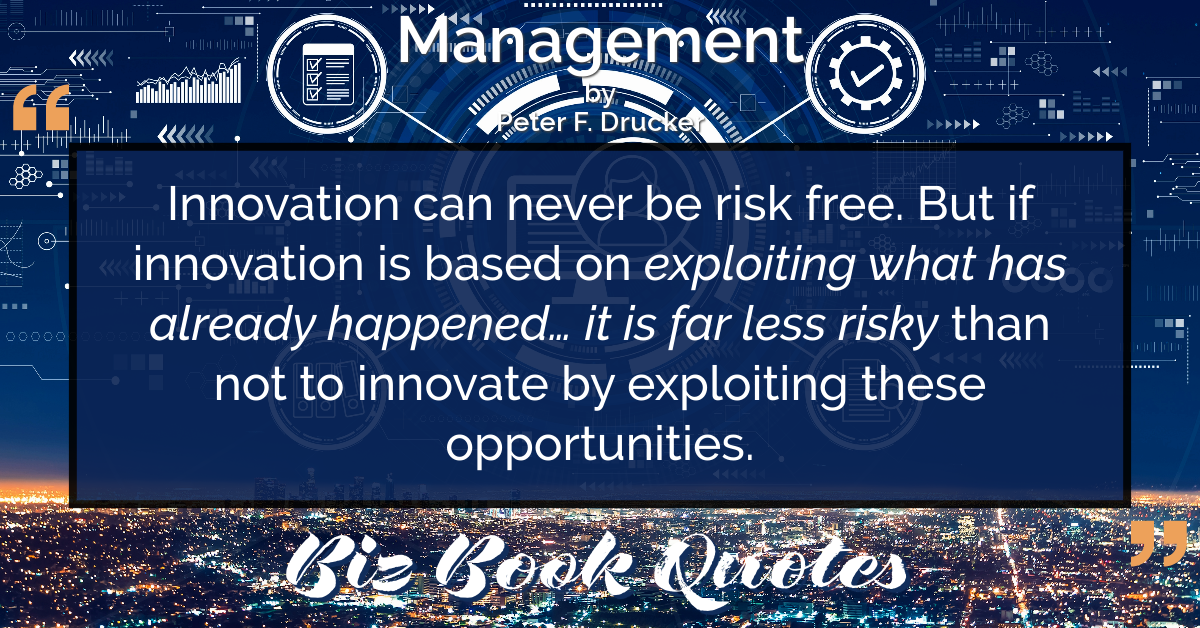|

|
Management:
…in the early stages of a new industry, a new market, or a new major trend, there is the opportunity to search systematically for the specialty-skill opportunity – and then there is usually time to develop a unique skill.
|
390 |
|

|
Management:
The business that establishes itself in a specialty-skill niche is… unlikely to be threatened by its customers or by its suppliers.
|
390 |
|

|
Management:
…anyone who asks the question, What does the customer really buy? Will win the race.
|
396 |
|

|
Management:
…anyone willing to use marketing as the basis for strategy is likely to acquire leadership in an industry or a market fast and almost without risk.
|
397 |
|

|
Management:
The unexpected failure may be an equally important source of innovation opportunities.
|
399 |
|

|
Management:
Innovations that exploit changes in market structure are particularly effective if one very large manufacturer or supplier dominates the industry and its markets during a period of rapid growth.
|
400 |
|

|
Management:
Innovation can never be risk free. But if innovation is based on exploiting what has already happened… it is far less risky than not to innovate by exploiting these opportunities.
|
402 |
|

|
Management:
Innovation is not ‘flash of genius.’ It is hard work. And this work should be organized as a regular part of every unit within the enterprise, and of every level of management.
|
402 |
|

|
Management:
…one cannot market research the truly new. Also nothing new is right the first time. Invariably, problems crop up that nobody even thought of.
|
402 |
|

|
Management:
Neither studies nor market research nor compute remodeling are a substitute for the test of reality. Everything improved or new needs, therefore, first to be tested on a small scale, that is, it needs to be piloted.
|
403 |











